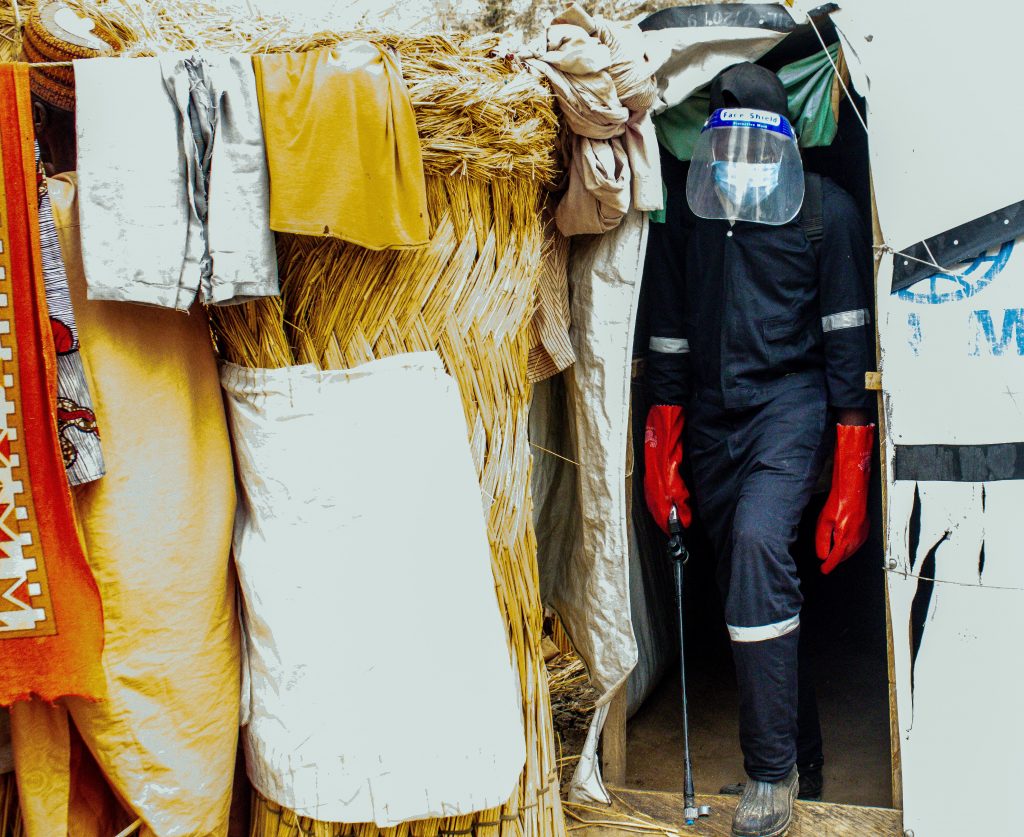Today (23 June 2022) at the Kigali Summit on Malaria and Neglected Tropical Diseases, we will hear about the progress been made to overcome these diseases that cause death and suffering to a large proportion of the world’s population.
But we still need to ramp up the critical work to tackle malaria and NTDs in countries with the highest disease burden and the hardest to reach communities. Richard Allan, The MENTOR Initiative CEO, created this organisation to deliver life-saving disease control in response to the most complex humanitarian emergencies.
He said:
“UNOCHA reported that 235 million people were in need humanitarian assistance and protection by the end of 2021, and this looks set to rise further in 2022. Many of those will be displaced – fleeing conflict and natural disasters, trying to survive in temporary shelters, IDP camps or with host communities. Overcrowding; poor sanitation; overburdened, or basic healthcare; and food insecurity significantly increases the risk of many diseases – and means typical preventative and curative measures will not work here.
Our partner agencies are doing excellent work to control and eliminate diseases in countries where they blight so many lives. But we have had to develop the skillset to meet the needs of vulnerable people living in very challenging settings. It is here where deaths from malaria are the highest, and living conditions increase rates of re-infection from a myriad of endemic diseases.
We are working where few others can – applying 20 years’ experience of comprehensive large-scale disease control that is effective in a complex environment. This has only been possible because of our partnerships with regulatory bodies, as well as private and public sector organisations committed to fighting diseases.
Central to the impact of our programmes is a tailored approach to meet specific needs and contexts. For example:
– Scaling up case management of malaria –training and building the capacity of Community Health Workers to provide diagnosis and treatment to people without access to health facilities. CHWs are able to move around and take the often life-saving treatment into remote communities, like in areas of Central African Republic, Angola and Mozambique.
– Decreasing malaria (and other vector-borne diseases) with a targeted solution like Indoor Residual Spraying with new and more effective insecticides, alongside activities such as Mass Drug Administrations that target NTDs co-existing here, such as in South Sudan and Syria. Building trust with communities during the initial stages ensures a high take up of the package of disease control that is often needed.
– Addressing the lack of water and poor sanitation with activities that improves hygiene has a knock-on effect on the rates of diarrhoeal diseases like cholera and the re-infection of these diseases. A holistic approach where WASH and issues like malnutrition and maternal health are tackled alongside disease control is essential to make a difference in the countries where we work.
Alongside our emergency disease control programmes, that today reach 10 million people in 11 countries, working with key private sector partners to research, evaluate and inform the development of new and easy to use tools such as:
- spatial repellents
- long lasting larvicides
- disinfection kits, and
- improved diagnostic tests and treatments
is game changing for the successful delivery of disease control programmes in the future.
This ensures that the tools being developed through these innovative private sector partnerships fit the contexts in which they will be used; and will have high rates of efficacy and effectiveness in the harsh living and operating conditions that characterise the high burden countries we focus on.
We exist to serve those in most need – vulnerable, displaced, and often forgotten people and communities worst affected by conflict and environmental disasters. With a dedicated, committed team based primarily in-country, and partnerships that bring a range of knowledge, expertise and experience we can continue our work to save lives and reduce the suffering of millions.”

